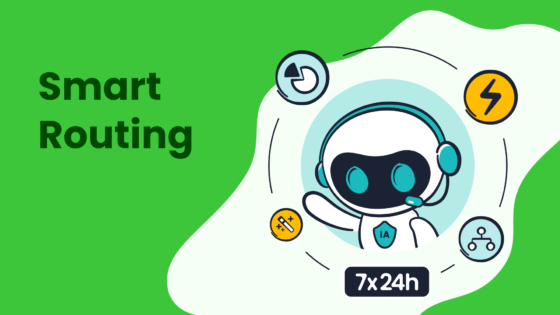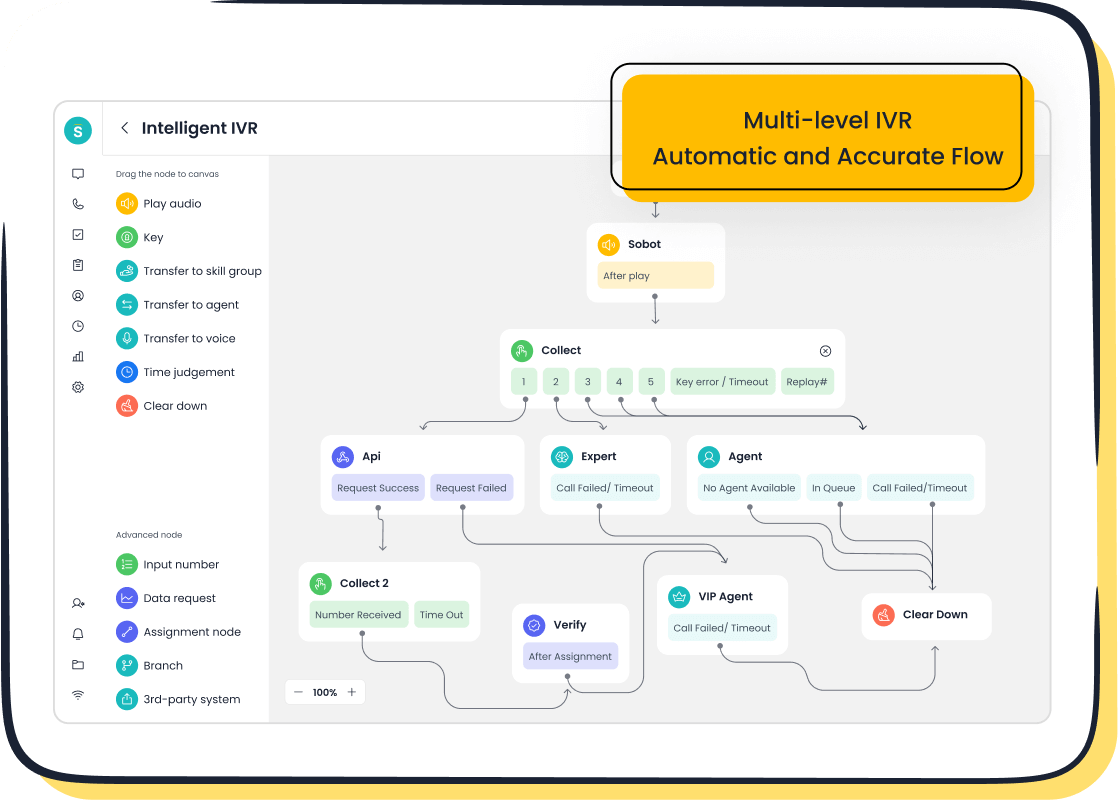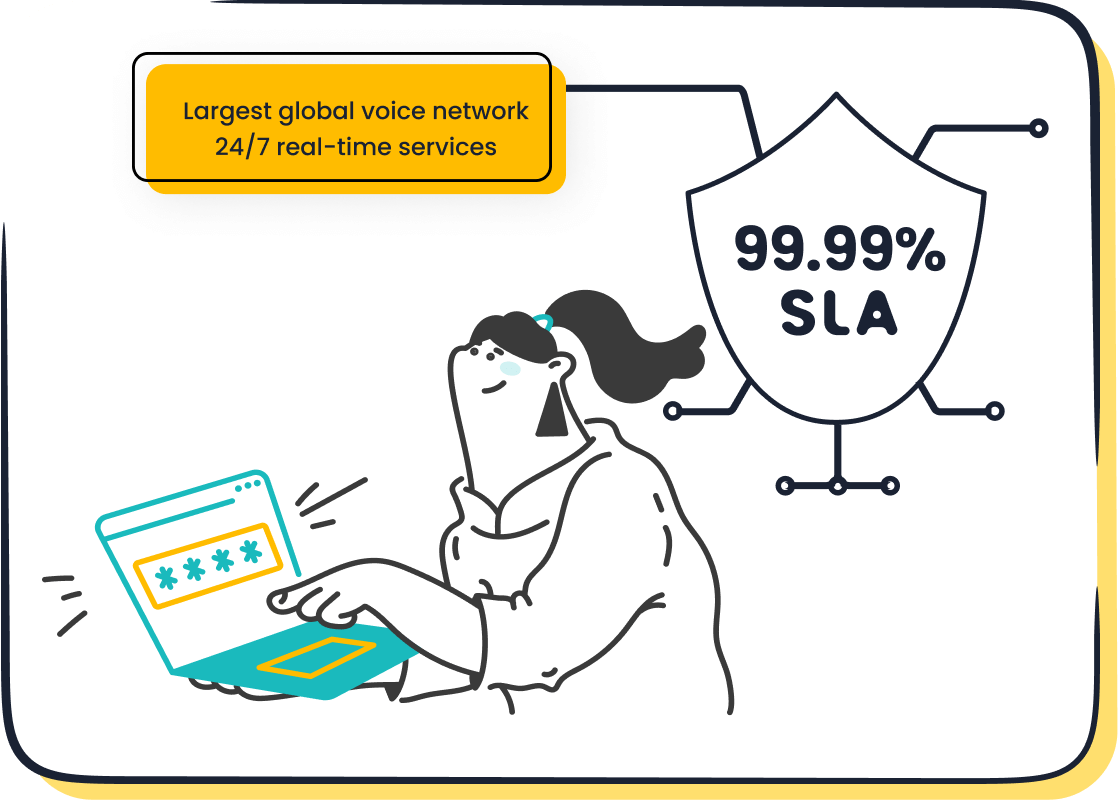What Does Customer Service Mean to You in 2025

Customer service in 2025 revolves around innovation and understanding your customers better than ever before. With advancements like AI-powered hyper-personalization and omnichannel support, businesses can now anticipate needs and deliver tailored experiences. For instance, 81% of customers say good service increases their likelihood of making repeat purchases. Yet, 58% feel companies fail to understand their needs. This gap highlights the importance of empathy in creating meaningful interactions. Companies like Sobot lead the way by integrating AI and automation into solutions that enhance customer satisfaction while maintaining a human touch. So, what does customer service mean to you in this evolving landscape?
What Does Customer Service Mean to You in 2025?
The Evolution of Customer Service
From Reactive Support to Proactive Engagement
Customer service has shifted from merely reacting to issues to anticipating customer needs before they arise. Companies like Anglian Water and BetterCloud exemplify this transformation by proactively addressing potential problems, such as notifying customers about outages or flagging issues before they escalate. This proactive approach builds trust and reduces the need for reactive customer support. Predictive analytics and AI tools play a pivotal role in this evolution. For example, AI-driven chatbots can identify patterns in customer behavior, enabling businesses to offer solutions before customers even reach out. This shift not only enhances customer satisfaction but also strengthens customer loyalty by showing that you care about their experience.
The Role of AI and Automation in Redefining Service

AI and automation have become indispensable in delivering effective customer service. Tools like Sobot’s AI-powered Voicebot streamline interactions by recognizing customer intent and providing instant resolutions. Businesses now use predictive analytics to anticipate customer needs, shifting the focus from problem-solving to problem-prevention. For instance, Budget Truck Rental uses AI agents to handle routine inquiries, significantly reducing inbound calls. These advancements free up human agents to focus on complex issues, ensuring a balance between efficiency and empathy. By integrating AI and automation, you can achieve customer service excellence while meeting evolving customer needs.
Personalization as the New Standard
Leveraging Data for Tailored Experiences
Personalization has become a cornerstone of good customer service. Studies show that 80% of consumers are more likely to purchase from brands offering personalized experiences. Businesses leverage customer data, such as purchase history and demographics, to create tailored interactions. Sobot’s unified workspace integrates customer data across channels, enabling agents to deliver personalized support seamlessly. This approach not only meets customer needs but also enhances satisfaction and loyalty. By investing in data analytics and fostering cross-department collaboration, you can ensure that every interaction feels uniquely tailored to the individual.
Meeting Customers Where They Are Across Channels

Modern customers expect seamless experiences across multiple platforms. Whether they reach out via social media, email, or phone, consistency is key. Omnichannel strategies, like those offered by Sobot’s Voice/Call Center, unify customer interactions into a single dashboard. This ensures that agents have a complete view of the customer journey, enabling them to provide effective customer service. For example, Tesco Mobile engages with new customers on social media to offer assistance, demonstrating the importance of meeting customers where they are. By adopting omnichannel solutions, you can enhance the overall customer experience and build stronger connections.
The Importance of Customer Satisfaction
Building Long-Term Relationships Through Trust
Customer satisfaction is the foundation of long-term relationships. Research shows that over 80% of consumers value trust as a key driver of loyalty. Consistently delivering good customer service fosters this trust, encouraging repeat business and positive word-of-mouth. Sobot’s solutions, such as its AI-powered tools, help businesses maintain high service standards, ensuring that customers feel valued. By prioritizing satisfaction, you can create emotional bonds that translate into lasting loyalty.
Enhancing Brand Loyalty with Exceptional Service
Exceptional service directly impacts brand loyalty. Studies reveal that 75% of customers remain loyal to brands that understand them personally. Sobot’s intelligent routing system ensures that customers are connected to the right agents, enhancing the quality of interactions. This level of personalization and efficiency not only meets customer needs but also sets your brand apart in competitive markets. By focusing on customer service best practices, you can turn satisfied customers into loyal advocates for your brand.
Why Customer Service is Critical in 2025
Driving Customer Retention and Loyalty
The Connection Between Service Quality and Repeat Business
Customer service directly impacts customer retention and repeat business. Studies reveal that 93% of customers are more likely to return to companies offering excellent customer support. Quick resolutions also play a vital role, with 67% of customers reporting higher satisfaction when response times improve. By prioritizing proactive problem-solving, you can address issues before they escalate, ensuring a seamless customer experience. Tools like Sobot’s AI-powered Voicebot streamline interactions, enabling faster resolutions and enhancing customer satisfaction. This approach not only builds trust but also strengthens loyalty, driving long-term business success.
Creating Emotional Bonds with Customers
Building emotional connections with customers fosters loyalty. Over half of customers leave a brand after a single poor experience, emphasizing the importance of consistent, high-quality customer support. By understanding customer needs and delivering personalized service, you can create meaningful interactions. Sobot’s intelligent routing system ensures customers connect with the right agents, enhancing the quality of every interaction. This level of care demonstrates your commitment to their satisfaction, turning one-time buyers into lifelong advocates.
Gaining a Competitive Edge
Differentiating Through Superior Customer Experience

Exceptional customer service sets you apart in competitive markets. Companies like Zappos and Chewy have built loyal followings by prioritizing customer support and empathy. Sobot’s omnichannel solutions unify customer interactions, ensuring consistency across platforms. This seamless experience helps you stand out, showing customers that their needs come first. By investing in superior customer service, you can create a lasting impression that drives retention and loyalty.
The Role of Brand Reputation in a Digital World
In today’s digital-first world, brand reputation hinges on customer service. Trust forms the foundation of customer relationships, and online reviews heavily influence purchasing decisions. Reliable customer support, like that offered through Sobot’s Voice/Call Center, enhances your reputation by delivering consistent, high-quality service. Positive experiences encourage customers to share their satisfaction online, boosting your brand’s visibility and credibility.
Supporting Business Growth
Turning Customers into Advocates
Satisfied customers often become your most effective advocates. Word-of-mouth referrals reduce marketing costs while driving new business. Sobot’s AI-powered tools help you deliver exceptional service, ensuring customers feel valued. This satisfaction encourages them to recommend your brand, amplifying your reach and fostering growth.
The Financial Impact of Customer Satisfaction
Customer satisfaction directly impacts your bottom line. Research shows that a one-point increase in satisfaction can reduce sales costs by 3%, saving millions annually. Sobot’s solutions, like its unified workspace, improve efficiency and reduce response times, enhancing customer retention. By focusing on satisfaction, you not only increase revenue but also build a sustainable foundation for long-term success.
How Customer Service Will Work in 2025
The Integration of AI and Automation
AI-Powered Tools for Predictive Support
AI tools are transforming customer service by enabling businesses to predict and address customer needs proactively. Predictive analytics analyzes historical data to identify potential issues before they arise. For example, Microsoft uses predictive models to detect dissatisfaction patterns, allowing for timely interventions. AI-powered tools like Sobot’s Voicebot enhance customer interaction by recognizing intent and offering tailored solutions instantly. These tools also leverage sentiment analysis to understand emotions, ensuring responses align with customer expectations. By adopting AI, you can reduce incoming queries, improve customer satisfaction, and foster long-term loyalty.
Automation for Faster and More Accurate Resolutions
Automation accelerates resolutions by handling repetitive tasks efficiently. Generative AI enhances automation by enabling nuanced interactions, freeing agents to focus on complex issues. Companies like Uber use AI to categorize and resolve simple inquiries automatically, improving response times. Sobot’s Cloud Call Center integrates automation with features like intelligent IVR and smart call routing, ensuring faster resolutions. This approach not only improves operational efficiency but also enhances the overall customer experience by delivering accurate and timely support.
Omnichannel Strategies for Seamless Customer Experience
Connecting Online and Offline Interactions
Omnichannel strategies bridge the gap between online and offline customer interactions. Customers expect a unified experience, whether they engage through social media, email, or in-store visits. Sobot’s Voice/Call Center consolidates these interactions into a single platform, providing agents with a complete view of the customer journey. For instance, Tesla’s AI-driven app allows customers to diagnose issues independently, seamlessly connecting digital and physical touchpoints. By integrating online and offline channels, you can create a cohesive customer experience that strengthens engagement and loyalty.
Ensuring Consistency Across Platforms
Consistency across platforms is crucial for effective customer support. Customers value seamless transitions between channels without losing context. Omnichannel solutions like Sobot’s unified workspace ensure agents have access to all relevant customer data, enabling consistent support. A study highlights that businesses using omnichannel strategies see a 91% higher customer retention rate. By maintaining consistency, you can enhance satisfaction and build trust, ensuring customers feel valued at every touchpoint.
Sobot’s Role in Shaping the Future of Customer Service
Enhancing Engagement with Sobot’s Voice/Call Center

Sobot’s Voice/Call Center revolutionizes customer support by combining AI and automation. Features like intelligent IVR and AI-powered Voicebot streamline interactions, ensuring customers receive prompt and accurate assistance. The platform’s global number availability and time zone support enable businesses to provide 24/7 service, meeting the needs of a diverse customer base. By leveraging Sobot’s solutions, you can enhance engagement and deliver exceptional customer service.
Streamlining Operations with Sobot’s AI Solutions
Sobot’s AI solutions optimize operations by automating workflows and reducing response times. The platform’s bulk outbound task feature assigns leads based on priorities, ensuring efficient call management. Real-time monitoring and analytics provide actionable insights, enabling you to refine strategies and improve performance. With Sobot’s tools, you can achieve operational excellence while maintaining high customer satisfaction.
Skills and Tools for Customer Service Professionals in 2025
Essential Skills for the Future
Adaptability in a Rapidly Evolving Landscape
In 2025, adaptability is a cornerstone of effective customer service. You must navigate a dynamic environment where communication channels and customer expectations evolve rapidly. Switching between platforms like live chat, social media, and voice calls requires agility. For instance, businesses leveraging omnichannel strategies, such as Sobot’s unified workspace, ensure seamless transitions across platforms. Staying updated on market trends and adopting new tools like AI-powered chatbots will help you meet customer needs efficiently. By embracing change, you can enhance the customer experience and maintain high satisfaction levels.
Empathy and Emotional Intelligence in Customer Interactions
Empathy and emotional intelligence are vital for building trust and loyalty. Advanced AI tools, like Sobot’s Voicebot, detect emotional cues in real-time, enabling you to respond with empathy. For example, proactive sentiment analysis can identify frustration and allow you to address issues before they escalate. Shifting from transactional interactions to relationship-building fosters long-term connections. By understanding customer emotions, you can create meaningful experiences that drive satisfaction and loyalty.
Technical Expertise and Problem-Solving
Navigating Advanced Tools and Platforms
Technical expertise is essential for managing modern customer service tools. Roles like Solutions Architect or Customer Service Manager demand proficiency in platforms like Sobot’s Cloud Call Center. You must understand features such as intelligent IVR and AI-powered analytics to optimize workflows. Effective communication skills also play a role in ensuring smooth collaboration across teams. By mastering these tools, you can deliver efficient and personalized customer support.
Resolving Complex Issues with Precision
Problem-solving is critical for addressing complex customer issues. Techniques like personalized engagement and multi-channel support improve resolution rates. For instance, Sobot’s intelligent routing system connects customers to the right agents, ensuring precise solutions. Training programs also equip you to handle diverse challenges effectively. By combining empathy with technology, you can resolve issues quickly and enhance customer satisfaction.
Leveraging Tools Like Sobot’s Voice/Call Center
Unified Workspaces for Efficient Call Management
Unified workspaces streamline call management by consolidating customer data and interactions. Sobot’s Voice/Call Center provides agents with a comprehensive view of the customer journey, enabling faster resolutions. Features like bulk outbound tasks and smart call routing improve efficiency. By using such tools, you can manage calls effectively and enhance the overall customer experience.
AI-Powered Analytics for Better Decision-Making
AI-powered analytics offer actionable insights to refine strategies and improve performance. Sobot’s Voice/Call Center analyzes call data in real-time, helping you identify trends and optimize operations. For example, monitoring customer sentiment can guide you in tailoring responses to meet expectations. By leveraging analytics, you can make informed decisions that boost satisfaction and loyalty.
Overcoming Challenges in Customer Service
Maintaining the Human Touch in an Automated World
Balancing Automation with Personalization

Automation enhances efficiency, but it can sometimes feel impersonal. Customers value interactions that make them feel understood and appreciated. To balance automation with personalization, you can use chatbots for initial queries while equipping agents with customer insights to deliver tailored support. For example, Sobot’s Voice/Call Center integrates customer data into a unified workspace, enabling agents to personalize interactions seamlessly. Multichannel support also ensures customers can choose their preferred communication method. By combining automation with human empathy, you create a service experience that feels both efficient and personal.
Training AI to Reflect Human Empathy
AI systems must reflect human empathy to build trust. Training AI to recognize emotional cues and respond appropriately is essential. Sobot’s AI-powered Voicebot uses sentiment analysis to detect frustration or satisfaction, allowing it to adapt responses in real time. This approach ensures customers feel heard, even in automated interactions. By focusing on emotional intelligence during AI training, you can maintain the human touch while leveraging technology.
Adapting to Changing Customer Expectations
Staying Ahead of Emerging Trends
Customer expectations evolve rapidly. In 2025, trends like AI-driven hyper-personalization and seamless omnichannel support dominate. Customers expect consistent experiences across platforms and proactive engagement. For instance, integrating AI tools like Sobot’s predictive analytics helps you anticipate needs and deliver tailored solutions. Staying updated on these trends ensures your service remains relevant and competitive.
Leveraging Feedback for Continuous Improvement
Customer feedback is a powerful tool for refining your service. Collect input through surveys, social media, and direct interactions. Platforms like Airbnb use feedback to implement changes that align with customer needs. Sobot’s analytics tools help you categorize and analyze feedback, turning insights into actionable improvements. By creating a feedback loop, you demonstrate your commitment to enhancing the customer experience.
Streamlining Operations with Sobot’s Solutions
Reducing Response Times Through Automation
Automation reduces response times by handling repetitive tasks efficiently. Sobot’s intelligent IVR and smart call routing ensure customers connect with the right agents quickly. Features like bulk outbound tasks further streamline operations, allowing you to focus on problem-solving for complex issues. Faster resolutions lead to higher customer satisfaction and loyalty.
Enhancing Efficiency with Sobot’s Unified Tools
Unified tools improve operational efficiency by consolidating customer interactions. Sobot’s Voice/Call Center provides agents with a complete view of the customer journey, enabling faster and more accurate resolutions. Companies like Alaska Airlines have seen productivity increase by 15% using similar solutions. By adopting unified tools, you enhance both efficiency and the overall customer experience.
Customer service in 2025 combines advanced technology with meaningful human connections. AI and automation streamline operations, while personalization ensures every interaction feels unique. Proactive service, like Apple's updates and personalized support, reduces friction and enhances the customer experience. Prompt replies, as seen with Zappos, retain satisfied customers and encourage loyalty. Sobot’s Voice/Call Center empowers businesses to deliver 24/7 support, meeting global expectations and building trust. Leveraging customer feedback, as Airbnb does, drives continuous improvement. By embracing innovation and prioritizing satisfaction, you can thrive in this evolving landscape.
FAQ
What role does AI play in customer service in 2025?
AI enhances customer service by automating repetitive tasks and predicting customer needs. Tools like Sobot’s AI-powered Voicebot analyze customer intent and provide instant resolutions. For example, predictive analytics can identify dissatisfaction patterns, allowing you to address issues proactively and improve satisfaction rates.
How can businesses maintain a personal touch with automation?
You can balance automation with personalization by using AI for routine tasks while equipping agents with customer insights. Sobot’s unified workspace integrates data across channels, enabling agents to deliver tailored support. This approach ensures efficiency without compromising the human connection customers value.
Why is omnichannel support essential for customer service?
Omnichannel support ensures consistency across platforms, meeting customers wherever they are. Sobot’s Voice/Call Center consolidates interactions into a single dashboard, providing agents with a complete view of the customer journey. This seamless experience builds trust and strengthens customer loyalty.
How does Sobot improve customer service efficiency?
Sobot’s solutions, like its Cloud Call Center, streamline operations with features such as intelligent IVR and smart call routing. These tools reduce response times and enhance accuracy. For instance, Agilent achieved a sixfold increase in efficiency and a 25% cost reduction using Sobot’s AI-powered tools.
What are the financial benefits of prioritizing customer service?
Investing in customer service boosts retention and reduces costs. Research shows a one-point increase in satisfaction can lower sales costs by 3%. Sobot’s tools, like its AI-powered analytics, help you refine strategies, ensuring long-term growth and profitability.
See Also
Best Customer Support Software Options for 2024
Transforming Support with AI Customer Service Agents
Enhancing Efficiency with AI Customer Service Tools